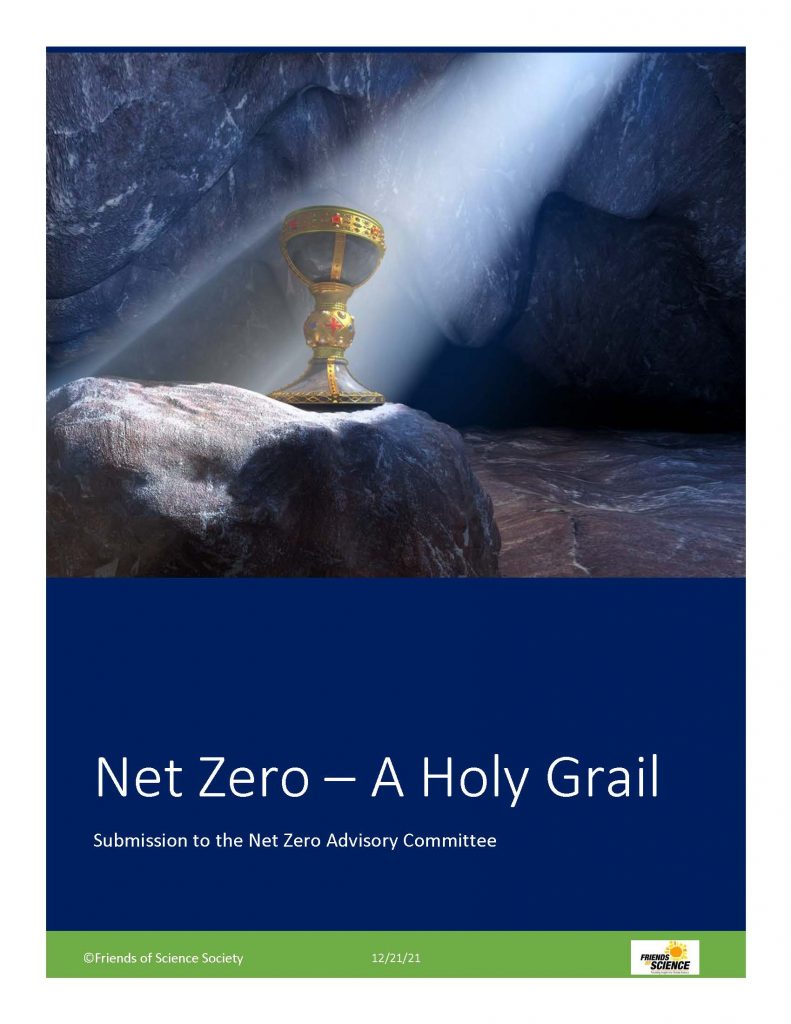Posted by Friends of Science admin © 2021
SUBMISSION TO THE NET ZERO ADVISORY BOARD
EXECUTIVE SUMMARY
This report responds to the Net Zero Advisory Board’s (NZAB) open consultation process.
The NZAB online process offers the opportunity to upload a file or to respond to the following:
How should the NZAB implement or refine its existing 10 values and principles to help ensure 2030 puts Canada on the mostly likely pathways to net-zero by 2050?
• Seize the upsides
• Put people first
• Motivate and empower Canadians
• Collaborate every step of the way
• Recognize and respect regional differences and circumstances
• Act early, and urgently
• Be bold and proactive
• Acknowledge there is more certainty than uncertainty
• Don’t get caught in the “net”
• Prioritize emissions reductions and use removal and offsets when necessary
Consequently, our report references these values and principles in chapter headings, though not in this order.

In principle, recent research has shown that climate models (simulations) used for setting public policy on climate run far too hot and do not reflect observed temperatures. This means the warming influence of carbon dioxide (CO2) has been overestimated, which in turn means that carbon taxes are set far too high. Other research shows the attribution of warming to carbon dioxide is flawed. The evidence from as far back as the 2013 UN Climate Panel (IPCC*) report showed that carbon dioxide is not the control knob that can fine tune climate.
However, as governments seem intent on establishing carbon taxes and such-like, we recognize that it may be necessary for international trade to have some Canadian equivalent that allows business to progress. A carbon tax will not change the weather or stop extreme weather events; it will make ordinary people poor, especially in Canada where harsh weather conditions and long distances affect the costs of goods and services.
Thus, we propose that the least damaging effect might be the ‘net’ – using offsets associated with our boreal forests as a means of carbon trading. We scientifically oppose this, but we recognize world leaders, at this time, do not agree with our scientific point of view.
Our report references our more detailed previous reports that respond to the Canadian federal government reports:
Climate Change Your Mind – responding to “Canada’s Changing Climate Report CCCRA 2019”
A Cruel and Unusual Punishment – responding to “A Health Environment and A Healthy Economy”
Penury or Prosperity – a two-part report responding to the Task Force on Resilient Recovery’s “Five Bold Moves”
Additional resources are offered within this report and at the end.
We’d be happy to collaborate with the NZAB or any Canadian group or with individuals to create common sense climate policies.
Leave a Reply! Please be courteous and respectful; profanity will not be tolerated.